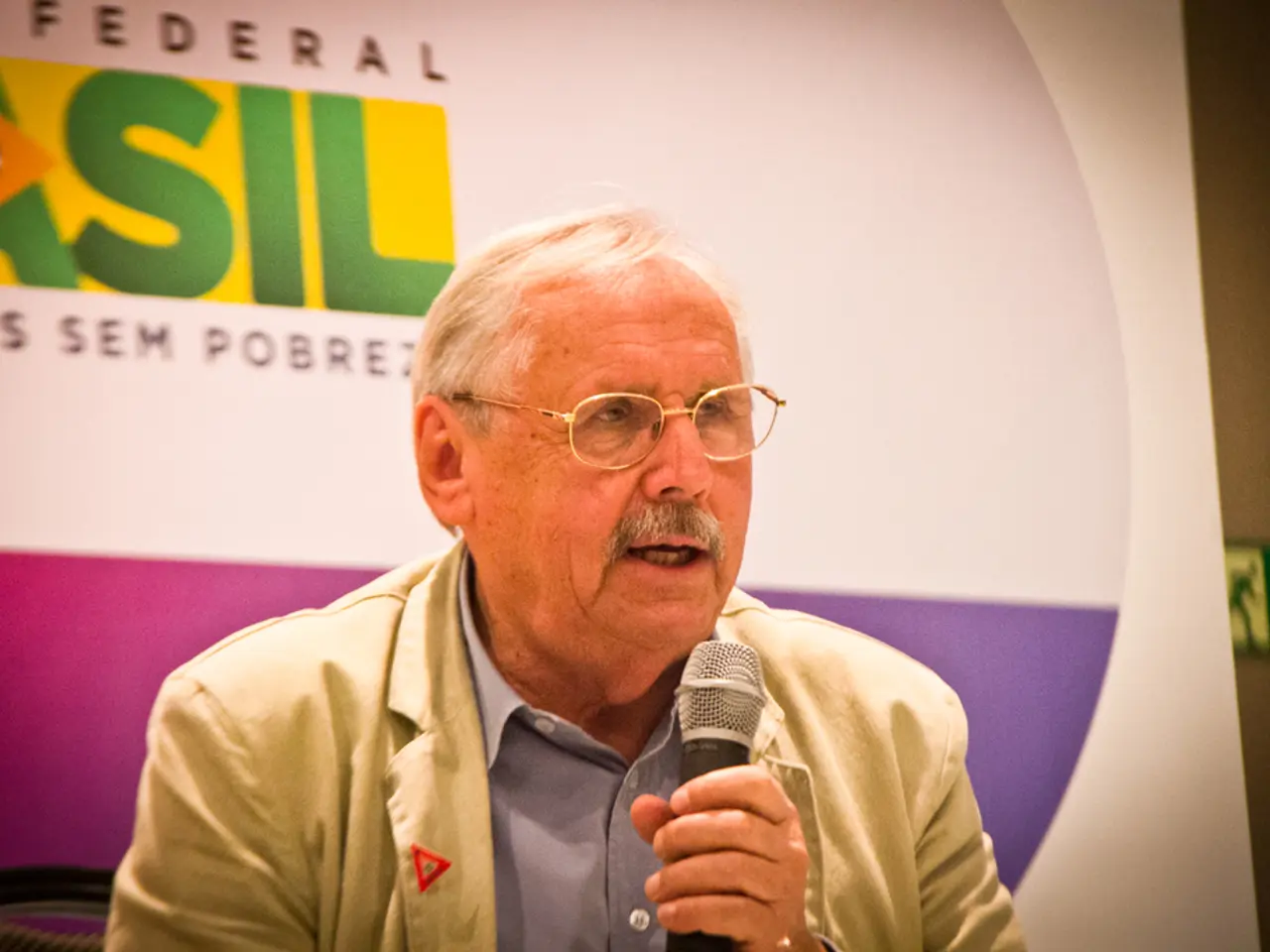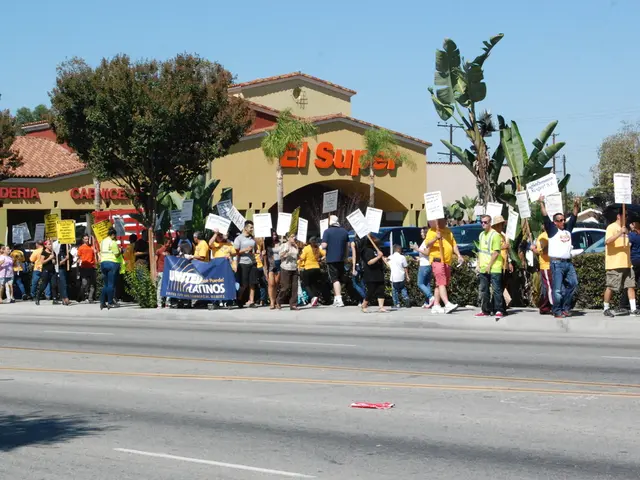Political parties within the government have reached a consensus on the financial plan for the year 2025.
In the heart of Europe, Germany's political landscape is experiencing turbulence as key parties express dissatisfaction with the current coalition government.
The Union, a political alliance formed by the CDU (Christian Democratic Union of Germany) and CSU (Christian Social Union in Bavaria), finds itself at odds with the SPD (Social Democratic Party), the Greens, and the FDP (Free Democratic Party).
Friedrich Merz, the leader of the CDU, has been vocal in his criticism of the federal government, stating that it is only arguing and governing Germany poorly. Olaf Scholz, the Federal Chancellor and a member of the SPD, acknowledges the demanding nature of government due to disputes, but maintains that the federal government is doing good work.
The Greens, led by Omid Nouripour, have suggested that a new government with new parties should form after the federal election. Nouripour, along with Merz, has expressed concerns about the compatibility of the three parties in the current coalition.
The government, responsible for various topics such as environment, economy, and education, has been working on negotiating a budget. These negotiations have proven complex and lengthy, with the Greens prioritizing climate protection and the CDU advocating for minimal regulations.
Climate protection aims to prevent the Earth from getting warmer by reducing emissions, which are produced by activities such as driving, heating, and power generation. The Greens, known for their environmental policy, have been pushing for more aggressive emission reduction targets.
Meanwhile, the SPD, with its emphasis on social issues, has been advocating for a balanced approach that considers both environmental concerns and the economic impact of emission reduction measures.
In the state of Baden-Württemberg, the current governing party where the CDU plays no role is Bündnis 90/Die Grünen (the Greens). This highlights the regional differences in political alignment within Germany.
The FDP, a German party that belongs to the liberal parties, has been playing a crucial role in the negotiations, advocating for minimal regulations and economic growth.
As the federal election approaches, the future of Germany's coalition government remains uncertain, with key parties expressing dissatisfaction and suggesting the need for change. The coming months will undoubtedly bring more political drama as the parties navigate their differences and seek a path forward for Germany.
Read also:
- United States tariffs pose a threat to India, necessitating the recruitment of adept negotiators or strategists, similar to those who had influenced Trump's decisions.
- Weekly happenings in the German Federal Parliament (Bundestag)
- Southwest region's most popular posts, accompanied by an inquiry:
- Discussion between Putin and Trump in Alaska could potentially overshadow Ukraine's concerns






